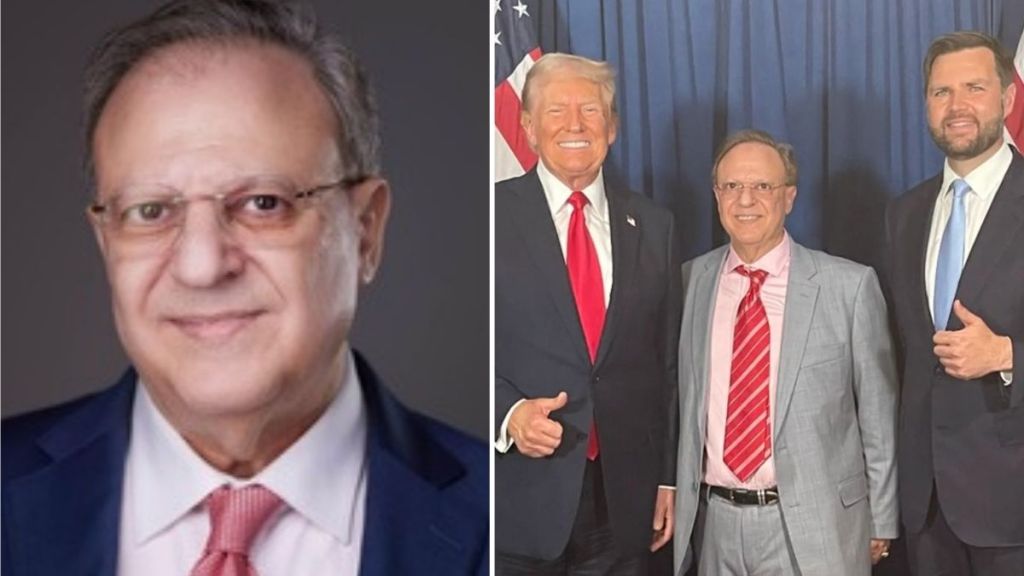As the White House under Donald Trump scrambles to secure a ceasefire agreement between Israel and Hamas, one unlikely figure has emerged at the center of the diplomatic effort — Palestinian-American scholar and activist Bishara Bahbah. Bahbah, who played a key role in securing the release of U.S.-Israeli dual national Edan Alexander from Gaza, is now working to broker a broader truce. But growing discrepancies between the offers being floated and pushback from official negotiators have cast uncertainty over the peace initiative.
Who is Bishara Bahbah?
Bishara Bahbah, a former Harvard academic and longtime Palestinian rights advocate, has taken on an unofficial role facilitating talks between Hamas and Trump’s Middle East envoy Steve Witkoff. His involvement came to light following the successful release of Alexander, and he has since been tasked with negotiating a broader deal involving the release of more hostages in exchange for a temporary ceasefire. However, confusion reigns over the details of competing proposals. While Reuters reported Monday that Hamas had accepted a U.S. offer, Witkoff denied any such agreement, calling Hamas’ response “completely unacceptable.”
Born in 1958 in East Jerusalem to a family displaced by the 1948 Nakba, Bahbah immigrated to the U.S. in the 1970s. A Harvard-educated academic, he earned his PhD in finance and served as associate director of Harvard’s Middle East Institute. He also led the Jerusalem-based newspaper Al-Fajr and participated in the 1992–1993 Arab-Israeli peace talks. Despite his roots in the Democratic Party, Bahbah broke ranks with the Biden administration over its stance on Gaza. In 2023, he aligned himself with Trump’s campaign, launching “Arab Americans for a Better America” and later “Arab Americans for Trump.” However, he rebranded the group to “Arab Americans for Peace” in protest of Trump’s suggestion to resettle Palestinians outside Gaza.
Reports in Arabic media this week indicated that Hamas had agreed to a U.S.-backed deal involving a 60–70 day ceasefire and phased hostage releases, with American guarantees that Israel would not resume war immediately after the truce. But Axios later revealed that Witkoff’s proposal differed significantly — offering a 45–60 day ceasefire in return for the release of 19 living and 10 deceased hostages, as well as Palestinian prisoners held in Israeli jails.
Israel pushes ahead with new offensive
Even as ceasefire talks stall, the Israel Defense Forces (IDF) have launched a renewed offensive in Gaza. Under “Operation Gideon’s Chariots,” the IDF warned residents in southern Gaza to evacuate ahead of an “unprecedented attack” targeting Hamas strongholds. Israeli forces have completed operations in Rafah and are now pushing into Khan Younis, expanding control over a corridor system that cuts through key parts of Gaza. The offensive has triggered international condemnation and drawn further criticism over Israel’s humanitarian conduct. Amid faltering ceasefire efforts, Trump has expressed growing impatience with Israeli Prime Minister Benjamin Netanyahu. “We want to see if we can stop that whole situation as quickly as possible,” Trump told reporters on Sunday, urging a swift end to the war. Despite Netanyahu’s initial optimism about a potential breakthrough, a senior Israeli official later walked back those hopes, stating the prime minister merely intended to reaffirm Israel’s commitment to freeing its hostages.
Hamas calls for global action
As Israeli forces continue their advance, Hamas has issued a fresh call for global protests against what it calls a campaign of “genocide and starvation” in Gaza. The group declared “days of global rage” for this Friday through Sunday, urging demonstrations worldwide to pressure Israel and its allies. The future of the ceasefire now hangs in a delicate balance — with diverging U.S. proposals, continued military escalation, and a growing disconnect between key players threatening to derail any path toward peace.

